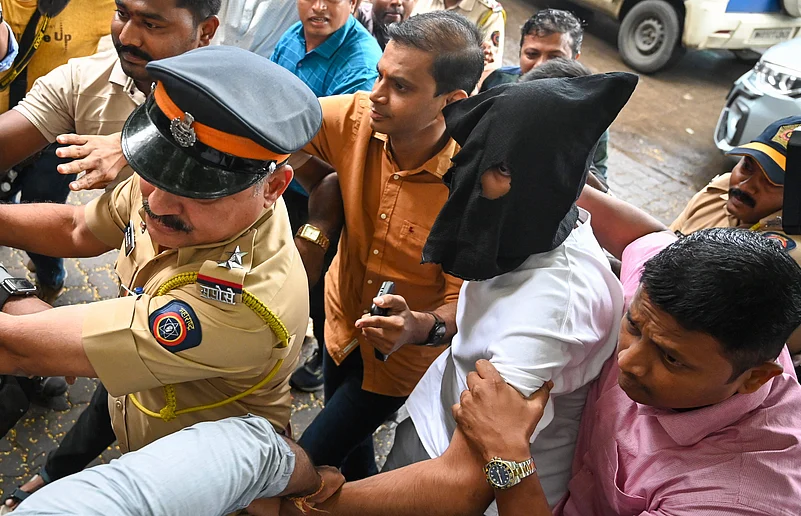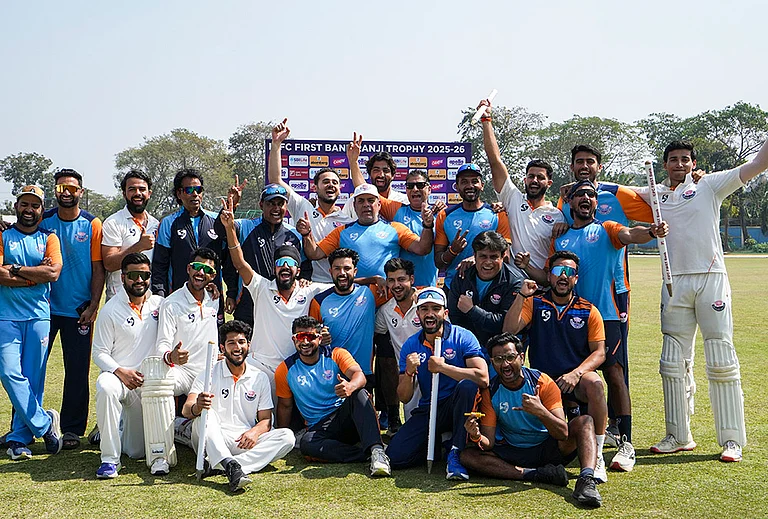
On Thursday, the Supreme Court delivered a groundbreaking judgment that reshapes how police carry out arrests across the country.
The highest court declared that everyone taken into police custody must be handed written reasons explaining why they are being arrested.
This pivotal ruling emerged during the Supreme Court’s hearing of the high-profile 2024 Mumbai BMW hit-and-run case.
No one can be arrested without being given written grounds of arrest by the police, the Supreme Court ruled on Thursday, November 6. In a landmark verdict, the top court has ruled that every person arrested must be furnished with written grounds of arrest in a language they can read, regardless of the offence for which they are being booked.
“The failure to supply such grounds in a language understood by the arrestee renders the constitutional safeguards illusory and infringes the personal liberty of the person as guaranteed under Articles 21 and 22 of the Constitution of India. The objective of the constitutional mandate is to place the person in a position to comprehend the basis of the allegations levelled against him, and it can only be realised when the grounds are furnished in a language understood by the person, thereby enabling him to exercise his rights effectively.”, the top court said.
The court has added that the grounds must be communicated orally, if it cannot be done in writing, “soon after the arrest.”
However, if the police do not supply the grounds of arrest to the person, the arrest is not vitiated if the written reasons are supplied “at least two hours prior to the production of the arrestee for remand proceedings before the magistrate,” the court ruled.
A bench comprising Chief Justice B.R. Gavai and Justice Augustine George Masih delivered the judgment in the 2024 Mumbai BMW hit-and-run case, also known as Mihir Rajesh Shah vs. State of Maharashtra.
The case involves a high-profile hit-and-run incident that occurred in July 2024.
In his 52-page judgment, Justice Masih said that the police had a constitutional mandate under Article 22(1) of the Constitution. Article 22(1) states that an arrested person must be informed of the grounds of their arrest “as soon as may be.” This, the apex court noted, was not just a procedural formality but a fundamental to protecting citizens’ personal liberty.
“This court is of the opinion that to achieve the intended objective of the constitutional mandate of Article 22(1) of the Constitution of India, the grounds of arrest must be informed to the arrested person in each and every case without exception and the mode of the communication of such grounds must be in writing in the language he understands,” the court’s ruling said.
“The constitutional mandate of informing the arrestee of the grounds of arrest is mandatory in all offences under all statutes, including offences under IPC 1860 (now BNS 2023),” it added.
According to the verdict, if the police fail to properly provide the written reasons for arrest, the detention becomes unlawful and the person must be released.
The Supreme Court also ordered its registry to circulate the judgment to every high court registrar general and chief secretary across all states and Union territories.
This judgment was delivered as the court considered appeals from Mihir Rajesh Shah, the accused in the 2024 Mumbai BMW hit-and-run case.
Shah had challenged his arrest, saying it was illegal since he was not furnished with written reasons as per the law. Although the Bombay High Court had earlier acknowledged a procedural lapse, it also upheld the arrest, saying that the offence was a grave one.
The SC was apprised of two issues in the 2024 Mumbai BMW hit-and-run case. First: “whether in each and every case, even arising out of an offence under IPC now Bharatiya Nyaya Sanhita, 2023, would it be necessary to furnish grounds of arrest to an accused either before arrest or forthwith after arrest”.
Secondly, the court was ruling on if, even in exceptional cases where it would not be possible to give written grounds of arrest, the arrest would stand, or not.
“Mere communication of the grounds in a language not understood by the person arrested does not fulfil the constitutional mandate under Article 22 of the Constitution of India. The failure to supply such grounds in a language understood by the arrestee renders the constitutional safeguards illusory and infringes the personal liberty of the person as guaranteed under Article 21 and 22 of the Constitution,” said the court, while referring to precedents.


























